Brother Claude Ely with a swell hat.
The Greatest White Gospel Record Ever.
Brother Claude Ely (born July 21, 1922 in the Virginia hill country near Puckett's Creek in Lee County, a few miles outside of Pennington Gap) was the greatest white gospel singer there ever was, and the only one I've ever heard who could hold his own with the great black gospel shouters of the golden era of gospel quartets (1946-66)-- Julius Cheeks (Sensational Nightingales), Archie Brownlee (Five Blind Boys Of Mississippi), Ira Tucker (Dixie Hummingbirds), and Paul Foster (Soul Stirrers). Okay, maybe not that good, but pretty damn close.
He sang and shouted his little heart out not for fame and fortune, but for the love of God.
Claude Ely took to music at age twelve, laid up with a case of TB, he started on harmonica, soon he was given a mail order Sear guitar by an Uncle-- "He brought it to my bed and laid it across my chest and by the hand of God my fingers began to play the chords and a voice came in my mouth to sing. From that day on I have been playing guitar and singing".
In his late teens he went to work in the coal mines of Harlan County, the scene of many of bloody labor struggle (documented in Barbara Kopple's 1977 documentary Harlan County U.S.A.), fought in World War II, and after the war returned to mining. While shoveling coal one day in 1949 he received a calling to the ministry. Directly from above. He became a pastor of the traveling sort, bringing the word to churches in Sneedville, Tennessee, and all around Lee County and in Cumberland, Harlan County. He would spend the rest of his life as an evangelist, working tent show revivals and eventually founding his own Free Pentecostal Church, an off shoot of the Church Of God (Holiness), the white version of the Church Of God In Christ, the black church that produced more great gospel singers, make that great singers, period, than any other organization, religious or other.
In 1953-4, Syd Nathan's King Records of Cincinnati, Ohio, the rhythm and blues and country music indie powerhouse label that (along with it's Federal, Deluxe, and Queen subsidiaries) recorded such R&B pioneers as the Midnighters, the Dominoes, James Brown, Wynonie Harris, Freddie King, the 5 Royales, and country and rockabilly artists like the Delmore Brothers, Cowboy Copas, Charlie Feathers, Moon Mullican, T. Texas Tyler, as well as a stellar gospel roster, black and white, that at various times included the Spirits Of Memphis Quartet, the Swan Silvertones, The Wings Of Jordan Choir, and the Brown's Ferry Four (who were actually the Delmore Brothers), recorded Brother Claude Ely at a church revival via a wire that ran through the radio station WCTW out of Whitesburg, Kentucky. On these recordings Brother Claude and his guitar are backed by a rockin' mandolin player whose name has been lost to time, and a female vocal group called the Cumberland Four. The first disc issued under his name -- There Ain't No Grave Gonna Hold My Body Down (later covered by Johnny Cash) b/w Holy, Holy, Holy (That's All Right) (King 5616) was, is, and will always be, the greatest white gospel record ever recorded, and one of the pinnacle moments of recorded American music. That same year (1954), King issued several more singles from that same revival meeting recording-- There's A Leak In This Old Building b/w Farther On (King 5617, I'm using the catalog #'s from the 45's, the 78's were issued in the 1300 series), You Gotta Move (this was the version that inspired Elvis' cover version heard in his first film Love Me Tender) b/w Little David Play On Your Harp (King 5618), and Talk About Jesus b/w There's A Higher Power (King 5619). These records, if they had secular lyrics would have been considered among the very first white rock'n'roll records. They, however are not rock'n'roll records, nor are they the type of religious country music known to collectors as "sacred", which usually means hymns done country style. These discs are hard shouting, driving, gospel music, the type usually only heard by black artists. I know of no other white singer that could fall into this category.
As well as traveling the gospel highway, Ely spent time as a pastor in churches in Grundy, Virginia,
Florence, Kentucky, and finally settling into a job as pastor of the Charity Tabernacle Church in the wide open sin city of Newport, Kentucky, right across the river from Cincinnati. A town more known for after hours gambling joints and strip bars than churches.
Brother Claude would not record for King again until 1962, when he recorded a session at Rusty York's (of the rockabilly classic Sugaree fame) studio, backed by fiddle, electric guitar, steel guitar, bass and drums as well as a male vocal group, who were also dubbed the Cumberland Four. From that session, which was issued by King as the LP The Gospel Ranger (later re-issued on Ely's own Gold Star label) came some excellent sides, not quite as wild as the church revival recordings, but well worth owning, the best tracks-- Stop That Train, I Want To Go To Heaven, My Crucified One, Fare You Well, That Old Fireside, and Do You Want To Shout rock nearly as hard as the '53-4 sides. If the lyrics weren't concerned with Jesus, these sides would be considered high energy hillbilly boogie and rockabilly, at it's finest. The rest of this session along with some earlier material would be released by King on the album
At Home And At Church, again, Ely would re-issue this album on his own Gold Star label, mostly to sell at revival meetings. He traveled considerably, working all over the eastern and mid-western United States, even getting to Canada and Alaska. He sang for Jesus, and for the Holy Ghost, and he sang hard, and preached even harder.
In September of 1977, Claude Ely suffered a heart attack but soon recovered and was back on the pulpit by the end of that year. On May 7, 1978, at a revival at his home base Charity Tabernacle, Ely was playing organ behind an evangelist named Maynard Banks. Banks called on Brother Claude to sing Where Could I Go To But The Lord, which he tore into in his usual high energy manner. Halfway through the tune he suffered another heart attack, fell off his stool and died in front of the packed house. The Holy Ghost took him home. In 1979 Ely's daughter-- Claudette Bowling issued an LP of his home recorded demos along with some sermons on the Jordan label, it was titled Where Could I Go To But The Lord. I've never been able to track down a copy of this rare disc. In fact, I've never even seen a copy. Since his death, no one has bothered to check his coffin to see if the grave did indeed hold his body down, but if I had to wager on it, I'd bet that box is empty.
In 1993, the UK Ace label issued a twenty three track CD of the best of Brother Claude Ely's King recordings, titled Satan Get Back (Ace CDCHD 456), I would say this is as an essential purchase as they come, and it includes several un-issued tracks including Ely's female backing singers-- the Cumberland Four's amazing rendition of I'm Just A Stranger Here and Ely's s wailing Send Down That Rain, the latter recorded at the 1953 Kentucky revival that produced his first five singles.
Recently, Brother Claude's nephew, a private investigator named Macel Ely II has published a biography of Claude Ely titled Ain't No Grave: The Life & Legacy Of Brother Claude Ely. It can be found here. The fools who purport to tell the history of American music seemed to have relegated Brother Claude Ely to a footnote, the man who recorded the versions of Ain't No Grave and You Got To Move that inspired Johnny Cash and Elvis Presley's covers. This is monstrously unfair, for Brother Claude Ely was one of the greatest singers ever recorded, and his career deserves to be celebrated, and his music demands to be listened to.



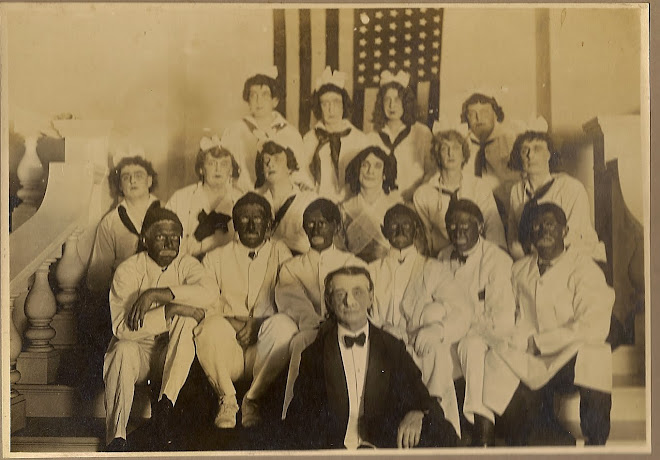

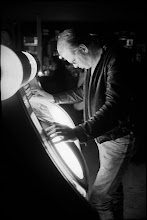
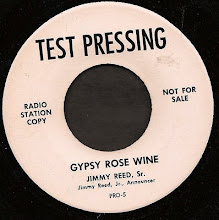
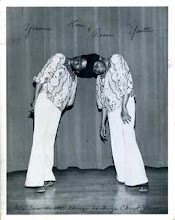
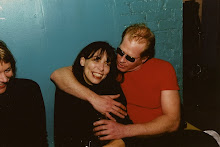

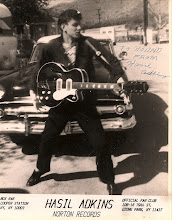


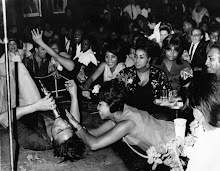

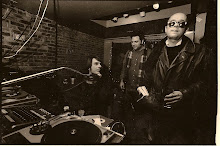

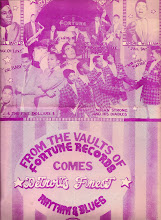
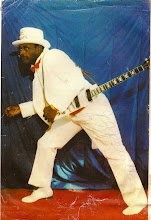

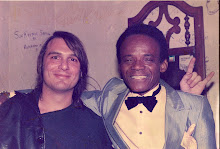
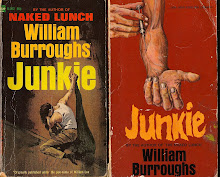




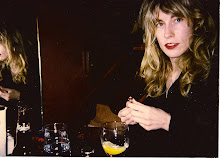
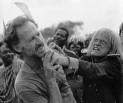

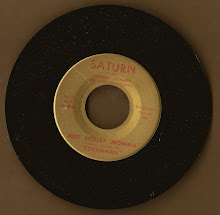
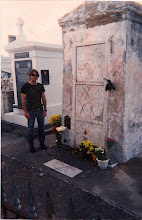

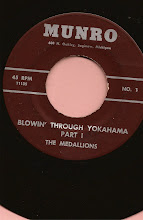
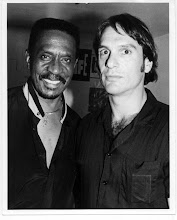
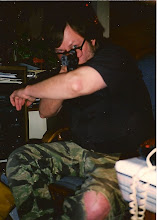
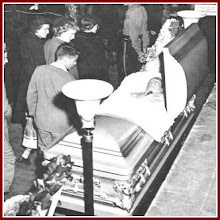
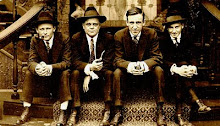
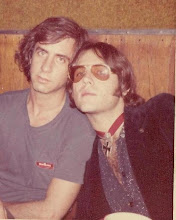b.jpg)


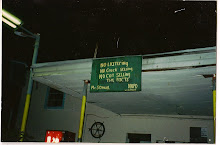


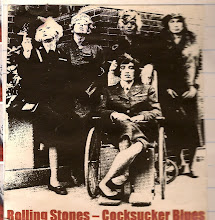

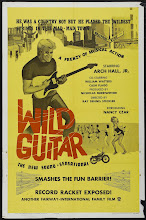


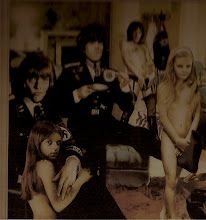

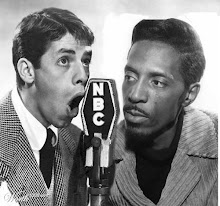
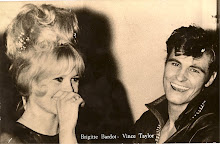
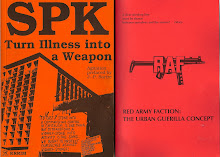
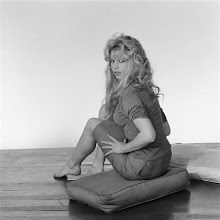
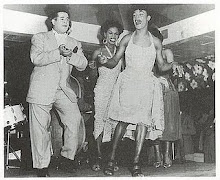









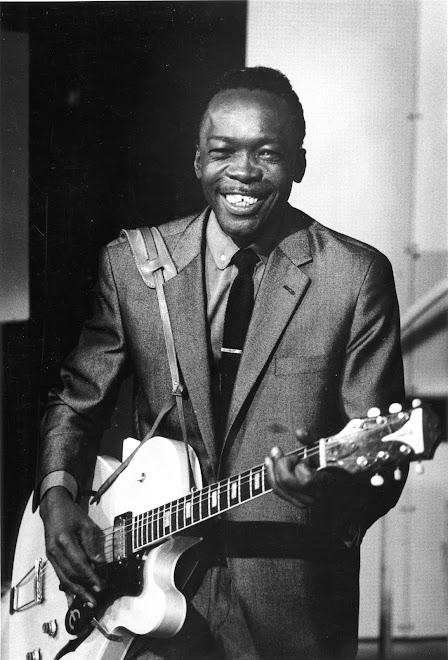
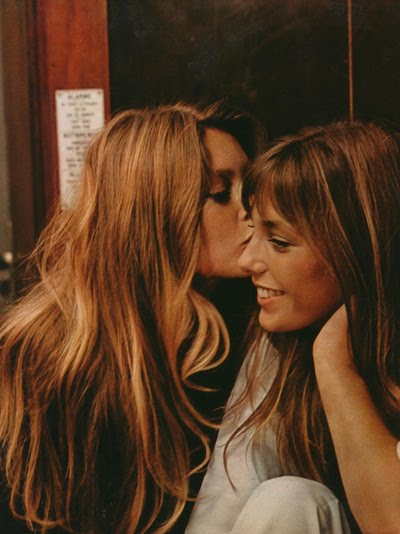
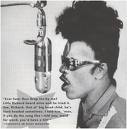
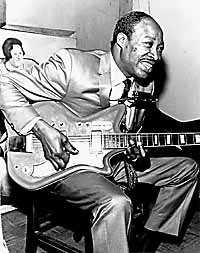
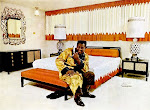
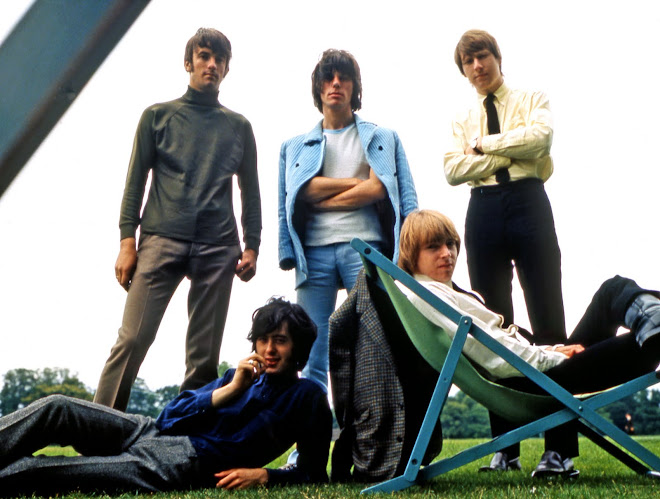

23 comments:
Thanks for this - fantastic! After having posted the Bells of Joy a few months ago doing 'Let's Talk About Jesus' (do you already have it?), it was so interesting to hear Brother Claude Ely's version.
Another great post, Hound. Thanks. Hell, I'd go to church if it still rocked this hard.
Newport, KY, sounds like it was once a real swingin' town. Where else could you have capped an all-nighter with a rousing service at the Charity Tabernacle in the Saturday Sinner/Sunday Saint fashion?
"After having posted the Bells of Joy a few months ago doing 'Let's Talk About Jesus' (do you already have it?),"
I have a copy, also have their first Peacock LP, every tune is killer.. Let's Talk was a good size hit....
"Newport, KY, sounds like it was once a real swingin' town. "
Last time I went through there (in '92) it was still pretty cool, trashy strip bars and good junk stores, even found a few good records....someone turned up a copy of Blind Joe Reynolds' "Cold Woman Blues" (only known copy) not far from there in the late 90's.
Great stuff.. Been following your blog for a few months now. Really appreciate the tunes and the history. Thanks..
You write as powerfully as Brother Claude used to sing.
Preach on from YOUR pulpit Brother Hound !
Praise the Lord and thank the Hound. Not necessarily in that order.
Thanks for this post. I am blessed to have heard this music. Amen brother.
Your editorial was great and you are abso friggin lutely right about Brother Claude being relegated to a mere footnote.This guy was as pure and raw as it gets and man some good Travis picking guitar too. Gospel of this caliber is in short supply where you named 4 of my all time favorite Black Gospel shouters ( I would have added Jimmy Outer of the Soul Stirrer as well ). I read your other entries and find them very interesting and well written. Thanks again.
No surprise to me to learn you're hip to Brother Ely. My piano player grew up with snake handlers like this guy and flipped when I first played him. It really does seem probable Elvis was aware and influenced, so why is Brother Ely such a footnote to most? Hope your succinct essay lights up a few bulbs. Thanks for your passion.
Some pretty hot white gospel from WV here:
http://www.youtube.com/watch?v=nl_8r7WG3g4
Very curious to learn more about the guitarist, if anyone's got the story.
Apologies for the double-post into discographical minutiae, but your post prompted me to double-check a few Bro. Claude records...
Regarding that Ain't No Grave / Holy Holy Holy 45, might that be a later pressing? Several years ago in KY I found an Ain't No Grave / Talk About Jesus 45, and it's King 1311. Pretty sure that's the song pairing on the 78 as well? I found the 78 once but gave it to my girlfriend at the time, who was a big fan. Perhaps not my shining moment.
I've also got a red label 45 (King 1282) that has There's a Leak... / You Got to Move, and a 78 that pairs Little David Play on Your Harp / Farther On (King 1375). So, it seems there might've been multiple pressings over the years?
In any case, of course the music is what's most important and so thanks very much for all the knowledge you've shared through your radio show, writing, etc. over the years!
"Regarding that Ain't No Grave / Holy Holy Holy 45, might that be a later pressing? Several years ago in KY I found an Ain't No Grave / Talk About Jesus 45, and it's King 1311. Pretty sure that's the song pairing on the 78 as well"
Judging by the type on thelabel, I think the 45 I scanned is a 60's pressing, my 78 is also #'d 1311, but I was too lazy to photograph it as it's too big for my scanner. The red label 45's were used for country discs in the 50's, so the first pressings were are most likely the red labels....
Hound: Though not attributed in the discography of the King/Ace collection, aural evidence is highly compelling that the lead guitarist on Brother Ely's 1962 sessions is Lonnie Mack, who was doing session work in Cincinnati at the time, just prior to the release of 'Memphis.' Take a listen to 'Fare You Well' and 'My Crucified One' and Mack's '63 King recordings, and I'm sure you will be convinced as well.
"aural evidence is highly compelling that the lead guitarist on Brother Ely's 1962 sessions is Lonnie Mack, who was doing session work in Cincinnati at the time, just prior to the release of 'Memphis.' Take a listen to 'Fare You Well' and 'My Crucified One' and Mack's '63 King recordings, and I'm sure you will be convinced as well."
I dunno, it doesn't sound like Mack to me, but I always think of his sound as having that ultra wet Magnatone amp tremelo all over it. Researcher Tony Russell suggests the guitarist on the '62 session as Dennis Hensley, about whom I know nothing.
Thanks! Great find for me!
Nice groove. Thanks for sharing.
I've been a big fan of Brother Claude Elys for a long time. Im glad someone has written a book about him. Thanks for the link!
Ever get the chance, take a listen to Brother Claude's preaching, yo.
Brother Claude's preaching makes his singing and playing sound restrained, like he is realy holding back some feelings that he needs to share with the group.
I am so happy to have discovered that The Hound has a blog! Wish I'd known about it before. I was a big fan of the radio show, which I discovered through WFMU's online archives, and soaked up a lot of terrific musical obscurities. Keep 'em coming.
And: This version of "Ain't No Grave" might be my favorite gospel song in the world.
http://www.npr.org/2011/05/05/136019632/a-nephews-quest-who-was-brother-claude-ely?ft=1&f=2&utm_source=feedburner&utm_medium=feed&utm_campaign=Feed%3A+NprProgramsATC+%28NPR+Programs%3A+All+Things+Considered%29&utm_content=Google+Feedfetcher
update:
http://www.npr.org/2011/05/05/136019632/a-nephews-quest-who-was-brother-claude-ely
Great it looks like this guy enjoys so much his music and he has a good music too
Post a Comment